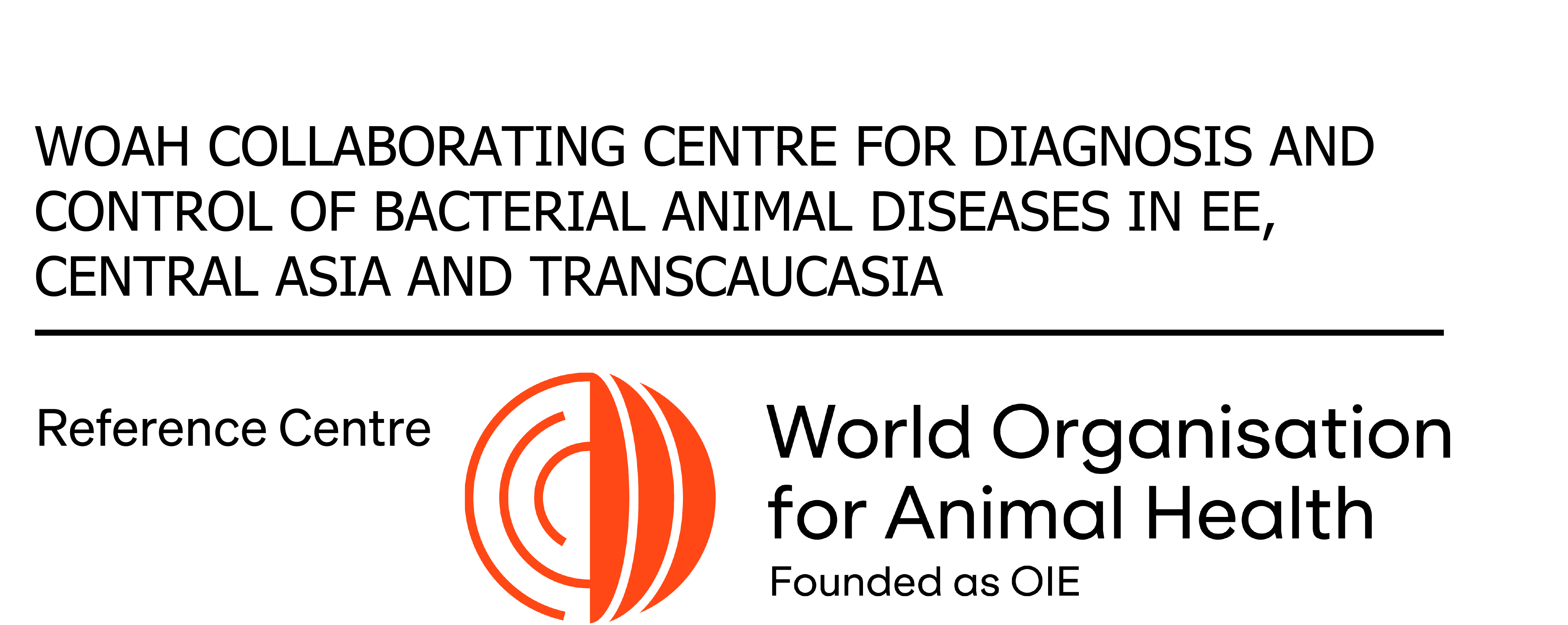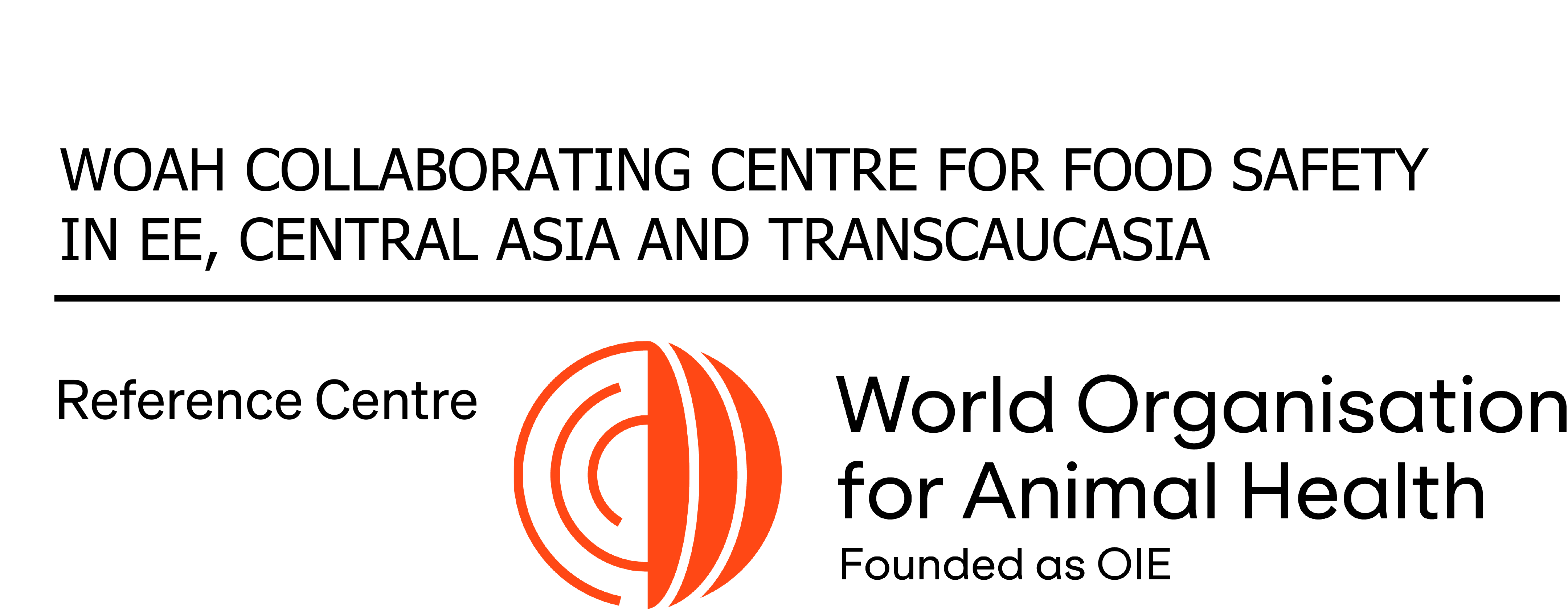VGNKI PARTICIPATED IN THE “KORMVETGRAIN - 2024” EXHIBITION
From October 22 to 24, 2024, the Russian State Center for Quality and Standardization of Veterinary Drugs and Feed (VGNKI under Rosselkhoznadzor) participated in the International Industrial Exhibition of Feeds, Feed Additives, Veterinary and Equipment "KormVetGrain - 2024".
During the opening ceremony, the organizers of the exhibition were congratulated upon the opening by the Director of VGNKI, Evgeniy Antonov, along with representatives from industry unions and associations, and the Extraordinary and Plenipotentiary Ambassador of Argentina to the Russian Federation, Enrique Ignacio Ferrer Vieira.
Having a busy agenda, VGNKI organized two roundtable discussions and a scientific and practical conference titled "Development of Preventive Measures Against Socially Significant Infections in Productive Animals Based on Modern Nutrigenomic Methods".
At the round table on "The Feed Industry: Development Prospects. State Regulation", Deputy Head of the Certification Body of VGNKI Natalia Aleshkina provided examples of the most common mistakes made by producers and importers when drafting Declarations of Conformity for feeds and feed additives. The speaker also pointed out that the Certification Body of VGNKI provides a service of drafting of such declarations.
In a report on pesticide contamination in feed products, presented by a senior specialist of the GMO Control Division of VGNKI Andrey Khishov, the issue of contamination was discussed in light of Russia's obligations as a member of the World Trade Organization.
A distinctive feature of feed regulation on the international level is the distribution of standards between the World Organization for Animal Health (OIE) and the Codex Alimentarius Commission (CAC), with the CAC prevailing. These standards are supplemented by the guidelines from the International Feed Industry Federation (IFIF). Accordingly, the current regulation of chemical risks in feed products in the Russian Federation is influenced by agricultural production processes that require the use of new chemicals, as well as by the demands of importing countries. Thus, the question arises regarding the introduction of veterinary control measures based on international standards or based on an independent risk assessment and detection of a regulated contaminant.
A senior researcher of the Food and Feed Safety Division of VGNKI Kristina Bakay addressed topics related to antibiotic control in feeds using express-methods and highlighted the advantages of the methodologies developed at VGNKI compared to other immunoassay (ELISA) test systems available on the market.
During the round table on "Prospects for the Development of the Veterinary Industry" were discussed the issues related to conducting research when veterinary medicines are introduced into civil circulation, as well as ensuring the availability of immune-biological products for anti-epizootic measures, and import substitution.
Deputy Director of VGNKI Vasilina Gritsyuk in her report underscored that 80% of all medicines released onto the domestic market today consist of domestic veterinary drugs, which are registered in Russia using an expedited registration procedure. In just 10 months of this year, 84 domestic pharmaceutical veterinary drugs and 12 foreign drugs have been registered, with the majority being antibacterial drugs. In the current year, 34 antibacterial drugs have been registered within 10 months, compared to 36 for the entire previous year.
Head of the Preclinical Research Division of VGNKI Gella Konovalova spoke about some nuances of conducting preclinical trials for veterinary medicines, requirements for personnel, laboratory facilities, and premises housing animals. Additionally, she discussed the main methodologies for studying general and specific toxicity using laboratory animals, including methodological and regulatory documentation. Particular attention was given to studying the bioequivalence of reference and reproduced drugs.
Corresponding Member of the Russian Academy of Sciences and a Counselor to the Director of VGNKI Alexander Panin was moderating the scientific and practical conference “Development of Preventive Measures Against Socially Significant Infections in Productive Animals Based on Modern Nutrigenomic Methods”.
During the conference, there were reports presented in the fields of microbiological and molecular genetic research focused on epidemic and epizootic strains of microorganisms and the prevention of socially significant infections in livestock.
Irina Soltynskaya, Head of the Molecular Biology Division of VGNKI, discussed the algorithm for studying bacterial genomes using high-throughput sequencing, which is utilized at VGNKI. Special attention was given to the bioinformatics analysis procedure, particularly the initial assessment of data quality and the criteria for genome assembly quality.
In her presentation, Olga Ivanova, a leading researcher of the Scientific Planning and Research Division of VGNKI and Candidate of Veterinary Sciences, outlined promising areas of activity aimed at reducing the spread of antimicrobial resistance in the Russian Federation, including the development of test plates for determining the minimum inhibitory concentration of antibacterial veterinary drugs. Using such plates, veterinary specialists on livestock farms will be able to obtain accurate information about the resistance of microorganisms in animals on their farms, enabling them to select the right drug and its therapeutic dose.
Saida Marzanova, Candidate of Biological Sciences and Head of the Biotechnology and Applied Immunology Center delivered a report on behalf of the Moscow State Academy of Veterinary Medicine and Biotechnology named after K.I. Skryabin on the “Antagonistic Activity of Lactobacillus Strains Against Salmonella Enteritidis”.
The speaker explained that a comparative evaluation of probiotic strains Bacillus subtilis, Lactobacillus fermentum, and Lactobacillus salivarius established a high antagonistic activity of L. fermentum against the pathogenic culture S. enteritidis. Furthermore, the enhancement of cultural and antagonistic properties of the L. fermentum strain was noted in the presence of prebiotics such as lactulose, inulin, and oligofructose. Along with the increased antagonistic activity, a rise in the bactericidal activity of antibiotics was observed. Thus, the synbiotic comprising the probiotic strain L. fermentum and the prebiotic lactulose, inulin, or oligofructose exhibits high antagonistic activity against antibiotic-resistant strains of conditionally pathogenic and pathogenic Salmonella.
Aside from the discussions within the business agenda, over the entire course of the exhibition visitors were receiving consultations from experts at the VGNKI booth regarding the necessary procedures and research for the registration of feed additives and medicinal products, as well as about educational programs, and specifics of organic production certification.
On the final day of the exhibition, a closing ceremony was held, where commemorative awards were presented to leaders in the production of feeds, veterinary medicine and equipment. VGNKI was awarded a diploma and a trophy for "Organizing and Conducting Business Program Events at the KormVetGrain-2024 Exhibition".





